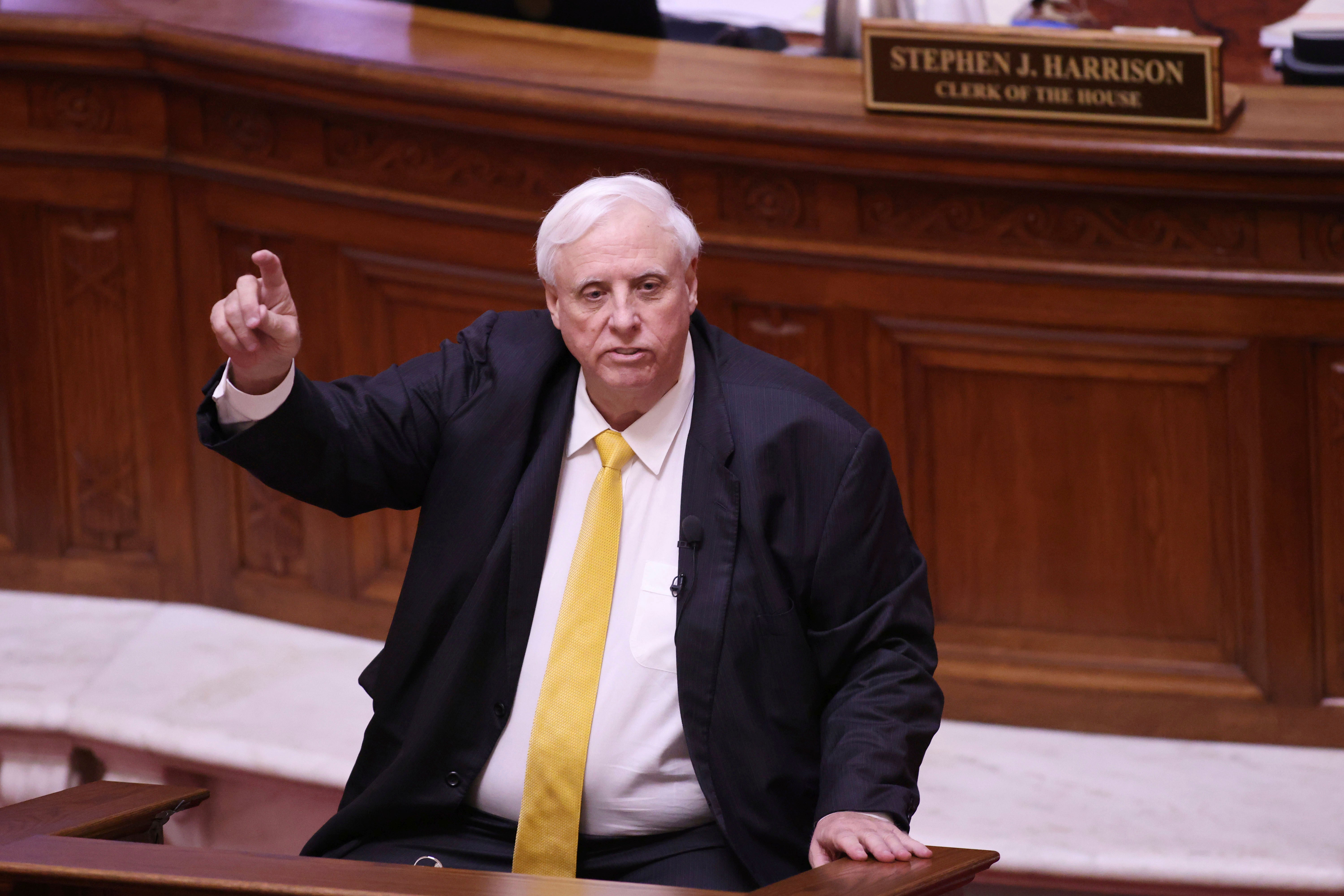WVa governor agrees to live in government seat, ending case
West Virginia Gov. Jim Justice has agreed to live in the seat of state government in Charleston, ending a long-running challenge over his residency

Your support helps us to tell the story
From reproductive rights to climate change to Big Tech, The Independent is on the ground when the story is developing. Whether it's investigating the financials of Elon Musk's pro-Trump PAC or producing our latest documentary, 'The A Word', which shines a light on the American women fighting for reproductive rights, we know how important it is to parse out the facts from the messaging.
At such a critical moment in US history, we need reporters on the ground. Your donation allows us to keep sending journalists to speak to both sides of the story.
The Independent is trusted by Americans across the entire political spectrum. And unlike many other quality news outlets, we choose not to lock Americans out of our reporting and analysis with paywalls. We believe quality journalism should be available to everyone, paid for by those who can afford it.
Your support makes all the difference.West Virginia Gov. Jim Justice has agreed to live in the seat of state government in Charleston ending a long-running challenge over his residency.
A Kanawha County judge Monday signed an order dismissing a 2018 lawsuit filed by a former state lawmaker.
Through his attorney, Justice said he intends to reside in Charleston “consistent with the definition of ‘reside’ in the Supreme Court of Appeals’ opinion," according to the dismissal order signed by Senior Status Circuit Judge Dan O'Hanlon.
“The parties agree that Respondent’s voluntary agreement to reside at the seat of government within the meaning of the Constitution renders this case moot and that the case should be dismissed,” O'Hanlon wrote.
In allowing the lawsuit to proceed in November, the state Supreme Court rejected arguments from Justice that the courts could not force him to live in the state capital.
The challenge has been a thorn in the side of Justice, a two-term governor who defended living in Lewisburg even though the state constitution says the governor “shall reside at the seat of government” in Charleston. The justices wrote that courts had the right to compel the Republican governor to comply with the constitution.
Justice's lawyers had appealed to the Supreme Court after the lower court declined to throw out the case. Democratic Del. Isaac Sponaugle brought the suit after bipartisan criticism that Justice lived 100 (160 kilometers) miles away from Charleston, near his resort, The Greenbrier.
Both sides had argued over the definition of “residency.” Sponaugle claimed the common sense meaning of the word “residency” holds that the governor needs to sleep in Charleston. But Justice's lawyers have said the term was vague and the matter was a political question outside the court's purview.
While defending the constitution's residency clause, the justices also said the governor "failed to meet his burden to show that the circuit court exceeded its legitimate powers.”
Under the terms of the dismissal order, Justice, a billionaire businessman and richest person in the state who owns a complex business empire of coal and agricultural entities, agreed to pay $65,000 to Sponaugle for attorney fees and costs.